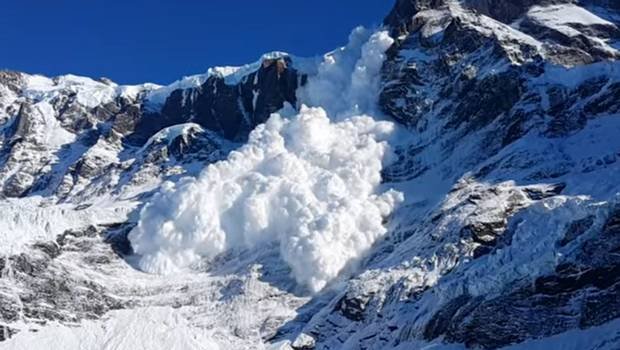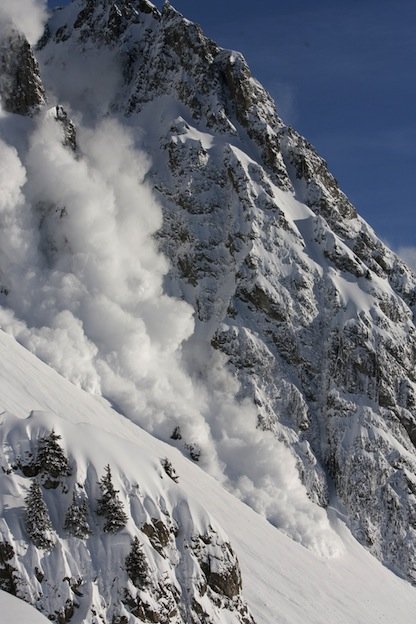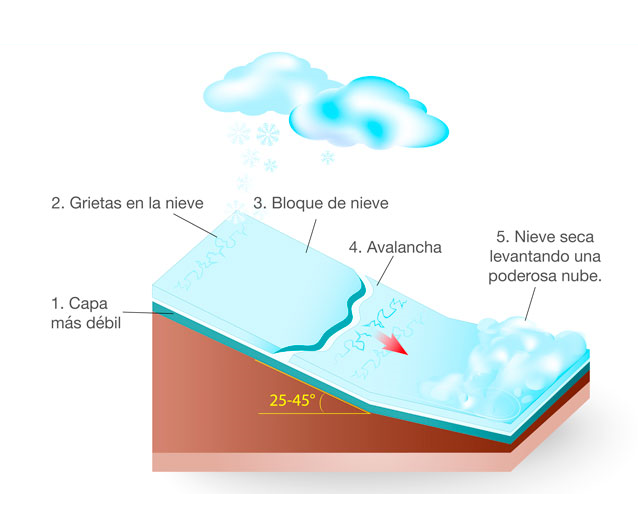An avalanche or avalanche is "a great mass of snow that collapses from the mountains with violence and noise"
Avalanches are characterized by the rapid flow of snow, rocks, ice, earth and other materials by an inclined surface or rather, by the side of a mountain. They are one of the most impressive and dangerous natural events that can be seen; At the same time, his incredible strength is often deadly. They can slide much faster than the most experienced skiers and bury people, animals and objects.
 Soucer
Soucer
"They are characterized by the rapid flow of snow, rocks, ice, earth and other materials down the side of a mountain."
If a large weak or unstable mass of snow collides with a slope and falls, its velocity increases as it slides downward, causing a loud noise and a huge cloud of ice and snow particles that are scattered in the air. While going downhill, the amount of snow increases, which can cause you to weigh around 1 million tons. As you saw on television.
Causes of avalanches
An avalanche is not an avalanche without snow, an inclined surface and a detonator. In general, avalanches are "born" on the slopes of mountains that are at an angle of 25-60 degrees from the ground and during or 24 hours after a storm that adds about 30 centimeters of snow to the upper layer.
The joints between the snow layers are usually weak, but there is a layer that is particularly unstable. The trigger can be an abrupt change of weather, the fall of a tree, an earthquake and loud noises (very, very rarely, the firing of a weapon). Sometimes skiers themselves cause an avalanche. Later, the avalanche grows as it passes through the slope and when it reaches the ground it compacts.
Types of avalanches
Avalanches are classified according to their intensity and other characteristics, but the following most common types can be mentioned:
-Avalanchas plate. They happen if the weak layer of the snow that is in the inferior zone is broken and a great zone of snow slides by the slope.
-Avalanchas of wet snow. Snow travels at low speed, but it is usually very dense.
-Avalanchas powder snow. It forms a large cloud of snow dust that glides at fast speed and travels long distances.
 Soucer
Soucer
Effects of avalanches
In addition to being able to bury large tracts of land under snow, they can destroy the nature that lies beneath the hillside. Although it sounds strange or disconnected, after an avalanche it is possible that a strong wind blows as the air compresses. However, its tangible effects are the collapse of trees, the sweeping of nearby vehicles and the destruction of buildings.
The danger posed by avalanches is usually magnanimous when people (often skiers) are in nearby areas or directly on the snow. As its prevention is not feasible, the person can be surprised and if the speed of the snow is fast it is in danger of death.
*- 93 percent of avalanche victims survive if they are rescued in a maximum period of 15 minutes.
*- Every year about 150 people die from avalanches.
*- During the First World War, the avalanches killed more soldiers than the poisonous gas.
*- The avalanches are more frequent during winter and spring.
Have a wonderful day.
Reference:
Note: @sirknight started a contest and its daily topics are:
Sunday-light
Monday - Darkness
Tuesday-AnimalDeer
Wednesday-Structures
Thursday-ForcesNature
Friday-AmorBellezaFreedom
Saturday-Agriculture


